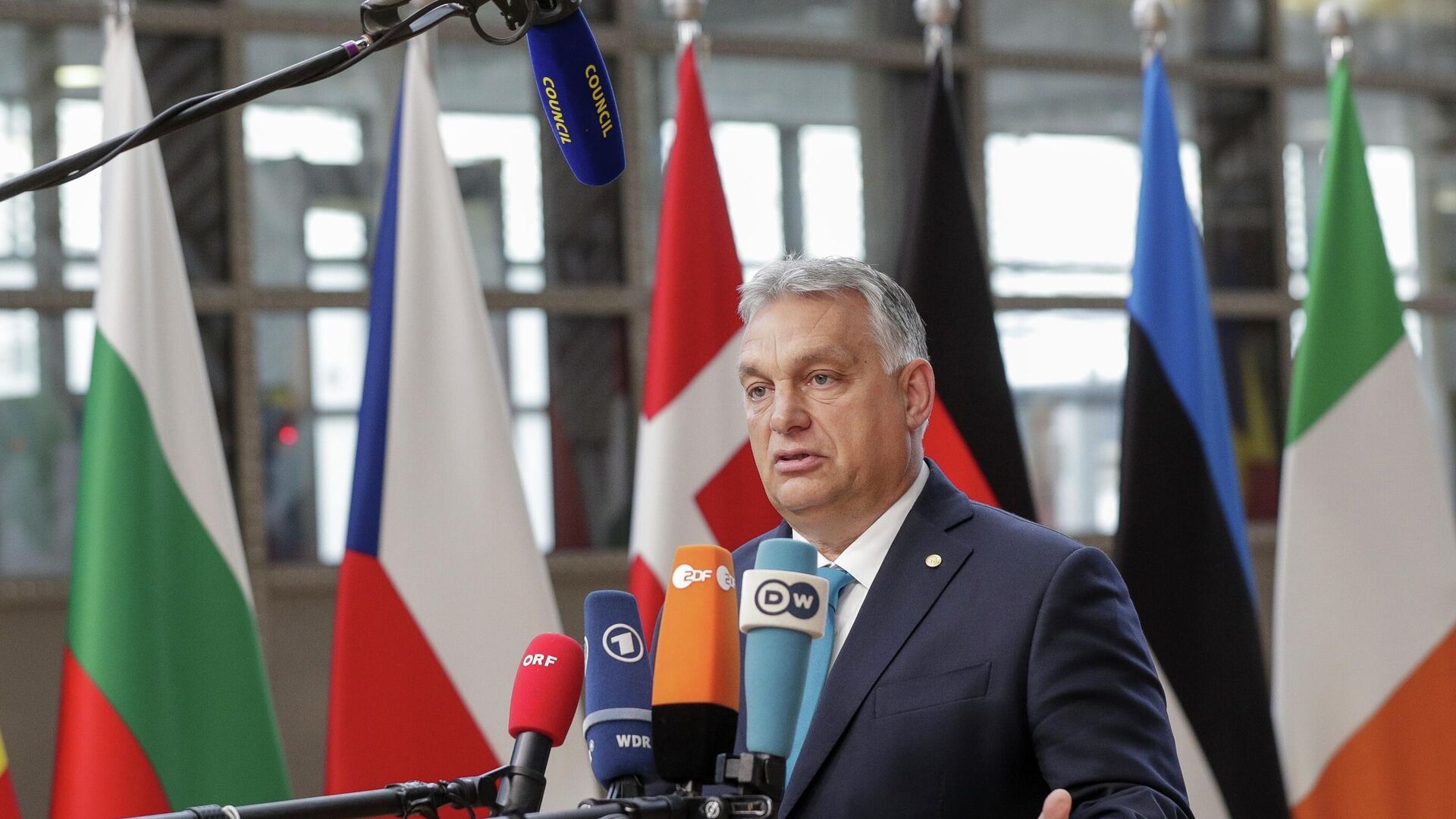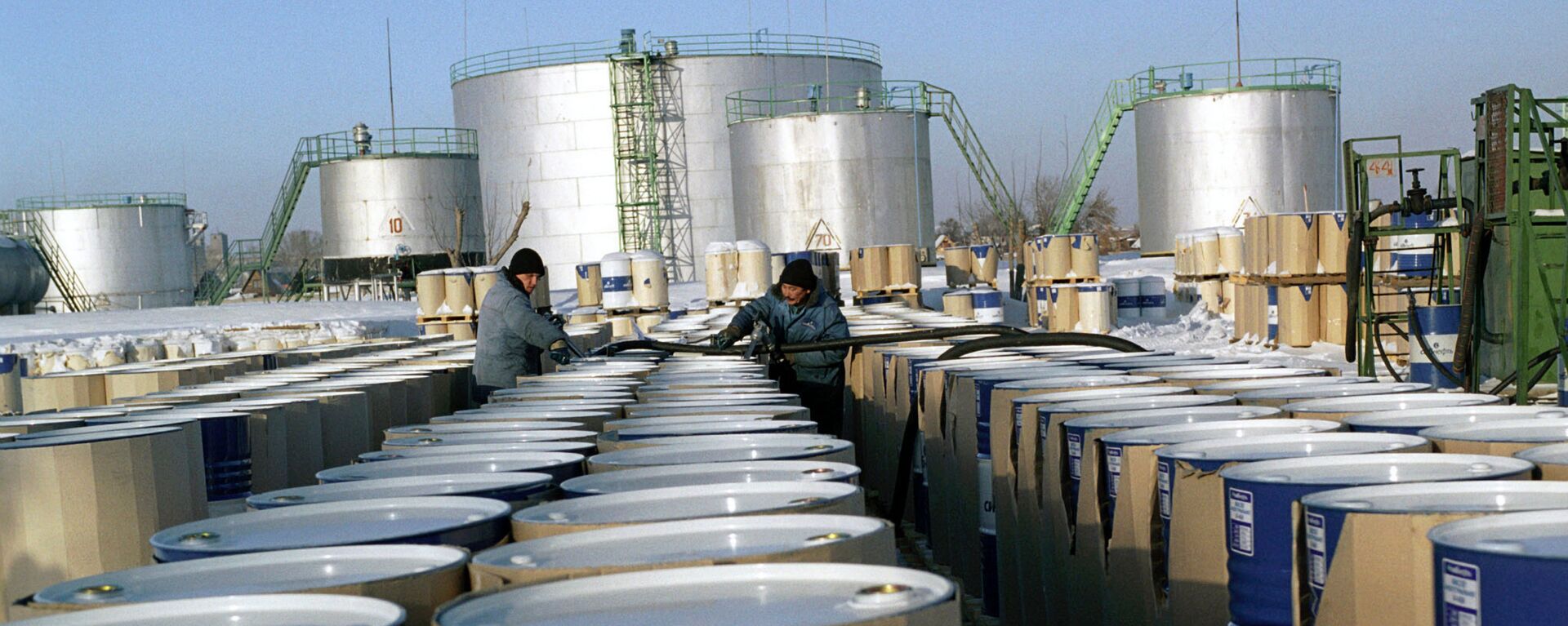'Like Atomic Bomb Dropped on Hungarian Economy': EU Reportedly Rewrites Proposed Russian Oil Ban
01:55 GMT 07.05.2022 (Updated: 17:10 GMT 20.06.2023)

© Olivier Hoslet
Subscribe
On Friday, EU Foreign Policy Chief Josep Borell denounced Hungary’s alarming assessment of the economic fallout from a potential Russian oil embargo as “unacceptable,” while the bloc appeared to grant extensions to Hungary, Slovakia, and the Czech Republic–but not Bulgaria.
A far-reaching sixth round of anti-Russia sanctions proposed by the European Union was reportedly redrafted Friday after facing heavy pushback from some of the bloc’s least affluent members this week, with Hungarian Prime Minister Viktor Orban likening the economic impact of the potential sanctions as akin to “dropping an atomic bomb on Hungary’s economy.”
Hungary’s Prime Minister says the EU’s proposed ban on Russian oil “is like an atomic bomb dropped on the Hungarian economy.”
— Wyatt Reed (@wyattreed13) May 6, 2022
“Oil can only come to Hungary by pipeline. One end of the pipeline is in Russia and the other one is in Hungary.”https://t.co/aoiO9gZ9zP
Hungary has been one of the most vocal critics of efforts by Brussels to cripple Russia’s economy–seemingly at the expense of Europe’s poorest countries. EU officials reportedly decided Friday to grant Budapest a two-year extension to implement the latest round of anti-Russian sanctions, after Hungary claimed the measures would “completely destroy” the foundations of their energy supply.
“It is not a question of lack of political will, it is not a question of intent, it is not a question of timespan, it is quite simply a physical, geographical and infrastructural reality,” explained Hungarian Foreign Minister Peter Szijjarto.
On Wednesday, he reportedly told Hungarian media that the only way Budapest could support the proposed sanctions package was if it exempted Russian oil transported via pipeline.
He laid out the logic the day before: “No one can expect us to allow the price of the war to be paid by Hungarians.” The country has faced serious pressure to cut ties with Moscow, with a typically-aggressive headline by German outlet DW warning Wednesday that Hungary “risks further isolation by refusing to support [the] EU oil embargo.”
On Wednesday, sources described a “tense and difficult” first meeting of EU ambassadors in negotiations over future efforts to punish Russians for the country’s ongoing special military operation in Ukraine. But Brussels’ headaches didn’t end with the summit.
On Friday, the EU granted a two-year extension to Slovakia as well, after Economy Minister Richard Sulik said Tuesday that the country would “insist on the exemption, for sure.” If the proposed deal is accepted, Slovakia, like Hungary, has until the end of 2024 to rid themselves of Russian oil, or face punishment from the EU themselves.
The Czech Republic has also resisted EU efforts to reduce the country’s supply of Russian energy, and was finally granted permission Friday to be given until mid-2024 to end its oil imports from the East–an extension six months shorter than those granted to Slovakia and Hungary.
On Friday, Mikulas Bek, the country’s minister for European affairs, defended the Czech position, noting they can’t continue propping up the floundering Ukrainian nationalists if they have a “crisis of the economy in the country.” The “heavy economic costs” imposed overnight by an all-out ban on Russian oil, Bek explained, would mean an end to the Czech Republic’s arms shipments to the Kiev regime.
Bulgaria, which has been forced to rely on its neighbors’ leftover energy supplies in recent weeks, also asked for an exemption in the event that other countries receive them. That request was reportedly rejected Friday, with Reuters quoting an anonymous EU official claiming the Bulgarians "don't have a real point.”
The Bulgarian economy has suffered serious damage since the flow of Russian oil ended in late April following the refusal by the EU’s poorest member state to pay for its energy supplies in rubles. "We are already on the brink. We'll have to raise our prices further," the owner of a Bulgarian bread factory reportedly told AFP on Wednesday. "How will people pay for this bread?Barring drastic action from Brussels, it seems they’re likely to find out soon.”



